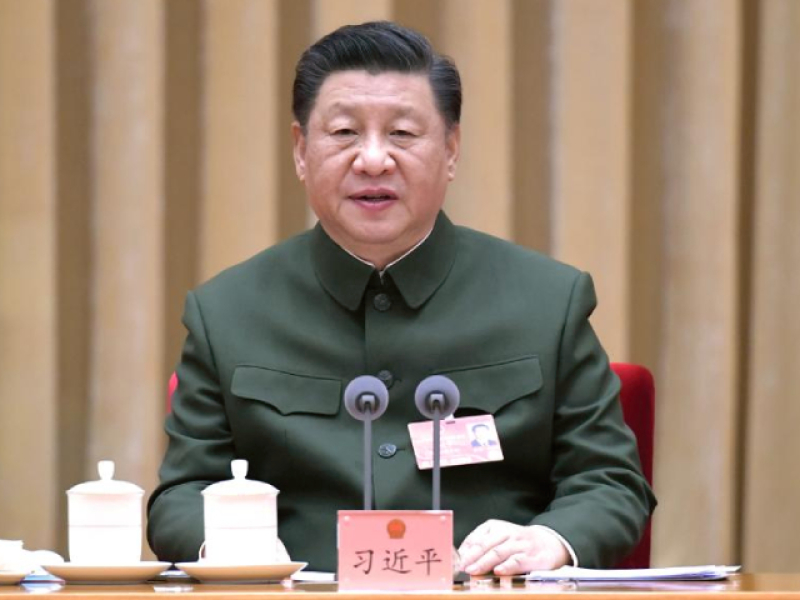
The communist Chinese state is allegedly amassing nuclear weapons, which include new strategic missiles, as per a national intelligence authority.
The Biden administration's Director of National Intelligence Avril Haines shared information this week on China's accumulation of "massive nuclear weapons" that include "hundreds of new strategic missiles," a new report revealed. China's buildup of nuclear weapons is part of President Xi Jinping's preparations to take over Taiwan.
Haines and four other intelligence agency leaders had divulged information on threats coming from China, Russia, North Korea, and Iran during the annual briefing on threats to U.S. security, the Washington Times reported. The intelligence director told a hearing of the House Permanent Select Committee on Intelligence that China's military accumulation of arms include "the largest ever nuclear force expansion and arsenal diversification in its history."
Most of the discussion during the hearing were about questions posed by committee members about Russia's military invasion of Ukraine, which faced intense resistance from Ukrainians and concerns of a nuclear war, which Russian President Vladimir Putin has hinted at several times. U.S. intelligence leaders said that the sanctions placed on Russia are also driving Moscow to find closer alliances with China.
"I believe that it continues to be the case that they are getting closer together," Haines said of the allegiance between Russia and China. "We see that across a range of sectors - economic, political, security and expect it to continue."
Haines added that bilateral cooperation may not be unlimited, but "remains a concern" for the U.S. The intelligence director added that Putin's invasion of Ukraine could also affect ties, as China refused to criticize Russia for the conflict and Beijing failed to participate in a U.N. Security Council resolution condemning Putin's military operation, leaving Russia as the only dissenting vote.
CIA Director William Burns reported that China isn't all too happy with Putin's invasion of Ukraine as it has made Western alliances stronger. He argued that China "valued their relationship with Europe and valued what they believed to be their capacity to try to drive wedges between us and the Europeans."
Now, China's amassing of nuclear forces has become a prime cause for concern among U.S. intelligence analysts. This is especially the case when China refuses to participate in arms reduction talks.
"China is building a larger and increasingly capable nuclear missile and bomber force that is more survivable, more diverse, and on higher alert than in the past, including nuclear missile systems designed to manage regional escalation and ensure an intercontinental strike capability in any scenario," the annual intelligence report said.
China's buildup of weapons include "hundreds" of land-based intercontinental ballistic missiles, which U.S. officials believe will be 10-warhead DF-41s with as many as 350 missiles, an upgrade from the estimated arsenal to have about 250 warheads. Burns warned, "Analytically, I would not underestimate President Xi and the Chinese leadership's determination with regard to Taiwan."
Meanwhile, China recently expressed displeasure over Japan offering to host U.S. nuclear weapons in response to Putin's invasion of Ukraine. According to The Guardian, Japan's influential former prime minister, Shinzo Abe considered the idea of hosting U.S. nuclear weapons on Japanese soil in a TV interview, arguing that countries such as Germany, Belgium, the Netherlands and Italy have done so before.
Chinese foreign ministry spokesman Wang Wenbin fired back, reminding Japan to "deeply reflect on its history" and to "be cautious in words and deeds on the Taiwan issue to stop provoking trouble."


















